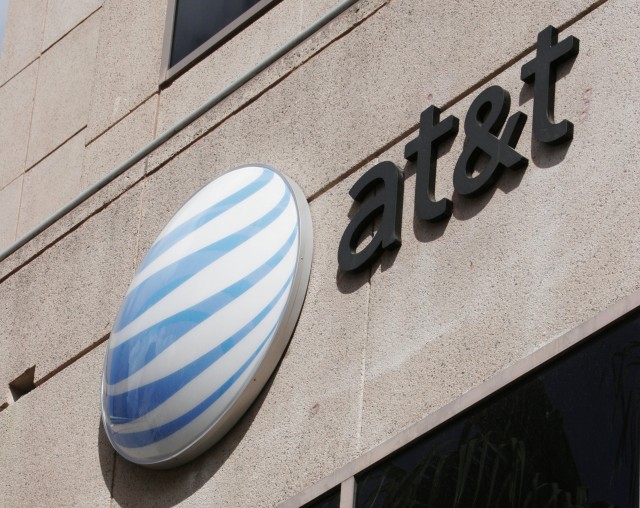
Throughout the history of business and commerce as a whole, there have always been monopolies in some form or another. A monopoly pretty much boils down to one single player in a specific industry, where consumers can only buy from that company, and that company dominates the market as they face pretty much no competition. There have been a few monopolies throughout the history of the United States. Most of the large ones have now been disbanded thanks to more stringent rules and government regulations. Still there are a few companies currently in operation today that are as close to a monopoly as possible. Here we take a look at five of the largest U.S. monopolies in history.
Photo by Justin Sullivan/Getty Images

5. The Bell Telephone Company/AT&T
The Bell Telephone Company was formed in 1877 as a company that would hold and purchase valuable patents. From the start they had the makings to become a monopoly, as they controlled Alexander Bell’s patent for the worlds first telephone. The company quickly began to grow by purchasing competitors, and eventually became the American Telephone and Telegraph (AT&T) company as they entered into the world of telecommunications. The quickly rose to the status of a monopoly during the early part of the 1900’s, as again, they were so big that they could buy any competitors. Then in 1918 the government awarded AT&T a contract to essentially build the telephone line network for the country. They dominated the industry for some time, however due to new technologies and later governmental regulations, they lost their grasp on the American telecommunications industry.
Photo by Toby Jorrin/Getty Images

4. The United States Steel Corporation
Another well-known monopoly from the history of the United States would be that of the U.S. Steel corporation. The U.S. Steel corporation was formed in 1901 when J.P. Morgan and Elbert H. Gary combined the Federal Steel Company, the Nation Steel Company, and the Carnegie Steel Company, the three largest players in the steel industry at the time. After they combined those three companies, U.S. Steel became the first billion-dollar corporation in the history of the world. Throughout the early parts of the 1900’s and the 1910’s, U.S. Steel acquired a variety of other small companies as well. Soon they were not only the largest steel production company in the United States, but the largest steel company in the entire world. They were soon providing the U.S. with 67% of all its steel. Even in 1911, the U.S. government wanted to break the company up, but they survived the ongoing legal battles. Eventually their stocks began to dip and that lost their hold on the industry. However they are still one of the largest steel companies in the world, just not the largest like they used to be.
Photo by China Photos/Getty Images

3. Intel
Intel formed up back in 1968 and has quickly become one of the largest technology companies in the world. While they are not technically a monopoly, they are just about as close as you can get to a monopoly without actually being one. They make the vast majority of microprocessors which are used in computers and servers around the world. A few estimates indicate that some 98% of chips used in servers are from Intel, around 90% to 92% of chips used in laptops are from Intel, and something like 82% of desktops use processors from Intel, according to Mercury Research and the IDC. If you have a computer, then theres a very good chance it’s powered by an Intel chip. The next biggest competitor to Intel is AMD, however they are nowhere near as large. It’s even believed that Intel could have forced AMD to go bankrupt but they “allow them to survive” so they can avoid becoming a full on monopoly. So while there are other microprocessor companies out the, Intel is still number one. They do arguably make the best computer processors on the market, however they are about as close to a monopoly as you can be.
Photo by Justin Sullivan/Getty Images

2. Monsanto
Monsanto is a multinational agriculture, chemical, and agricultural biotechnology company that’s based out of Creve Coeur, Missouri. When it comes to shady and arguably “evil” corporations, Monsanto is quite notorious, and many would argue them to be a monopoly. They were one of the first organizations to genetically modify plant cells, and one of the companies that pushed for laws allowing them to patent their plants. They produce plants like corn that is more resistant to weather and is easier to grow, for example. However they design all of their plants will “kill switches”. That is, at the end of the crop cycle, the plants have been altered to not produce any seeds. That means that each year farmers have to re-buy seeds from Monsanto. So what happens if some of Monsanto’s seeds gets mixed in with a farmer that doesn’t use their seeds? Well they will sue you, seriously. There’s plenty of literature out there detailing why this company is so bad, but they are certainly a monopoly because they control 80% of the genetically modified corn and 93% of the genetically modified soy plants that are grown in the United States.
Photo from Monsanto

1. Standard Oil
Arguably the most notorious monopolistic company in the history of the United States would probably be Standard Oil. Standard Oil was established in 1870 by John D. Rockefeller, who’s only the richest person in the history of the United States. After a series of acquisitions and after rapid expansion, Standard Oil controlled nearly all of the oil production in the country. However they also controlled the refineries, most of the wells, and the transportation of the oil. At one point, it was believe that they controlled somewhere between 88% to 91% of all the oil in the United States. The company then began to spread throughout the world, all of which happened at a time when oil was still a fairly new resource. At their height, Standard Oil was arguably the most profitable company in the entire world. However after growing concern, the United States Supreme Court ruled in 1911 that they were an illegal monopoly, and then dissolved the company.
Photo by David McNew/Getty Images
